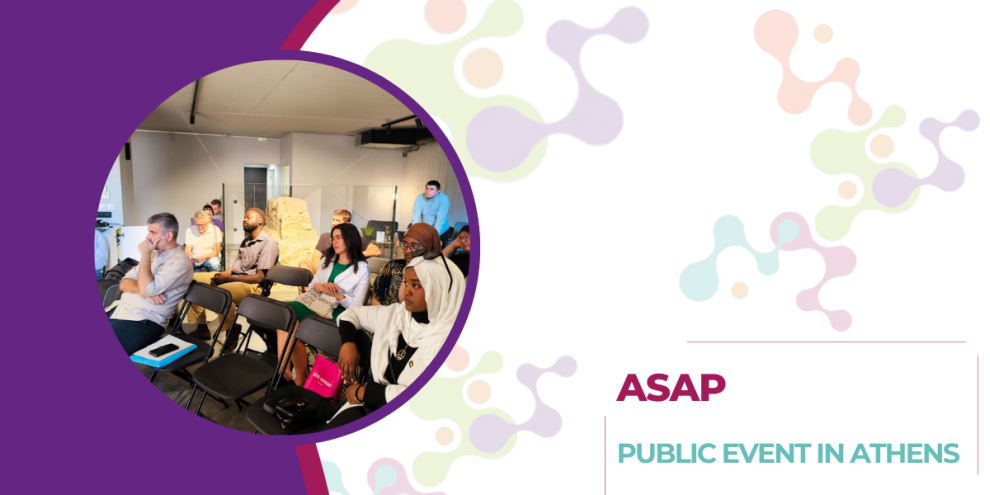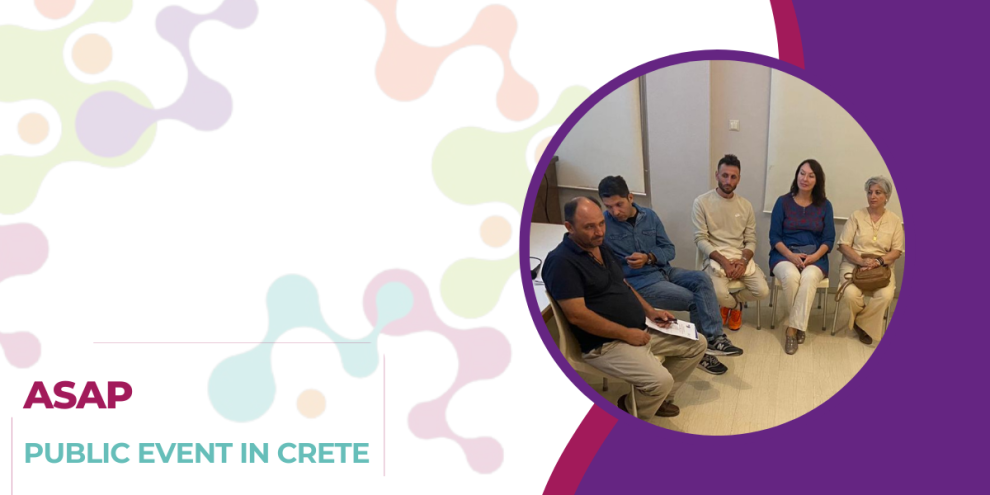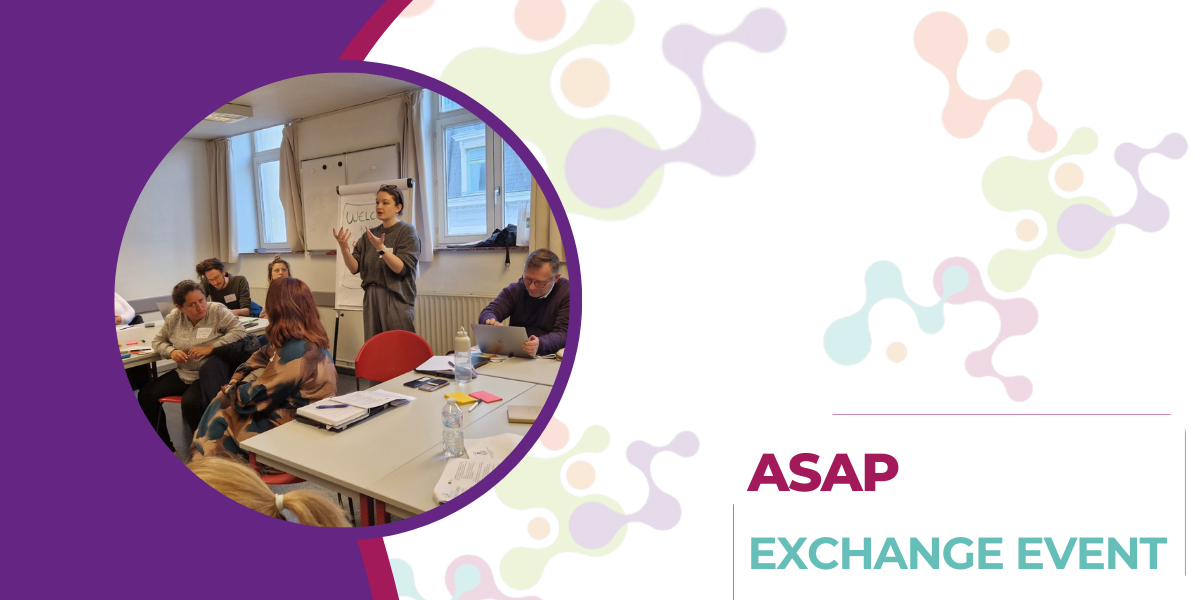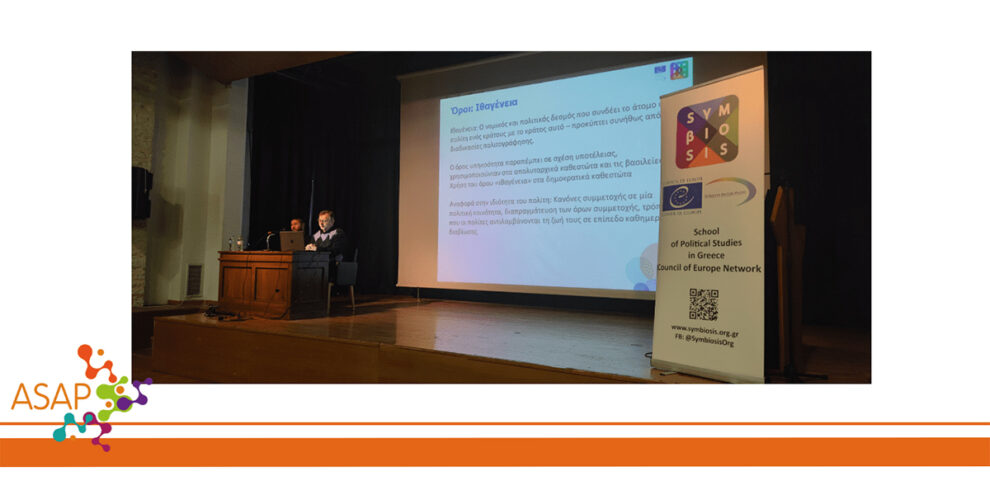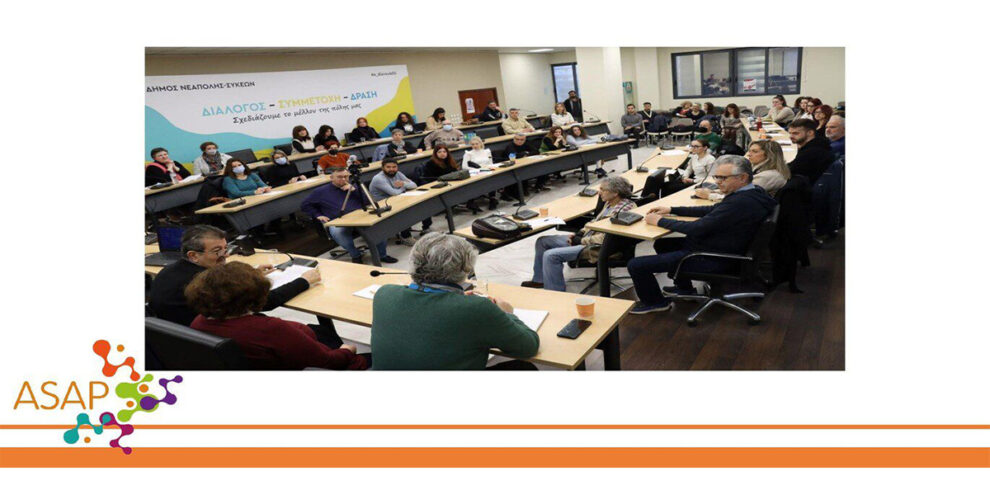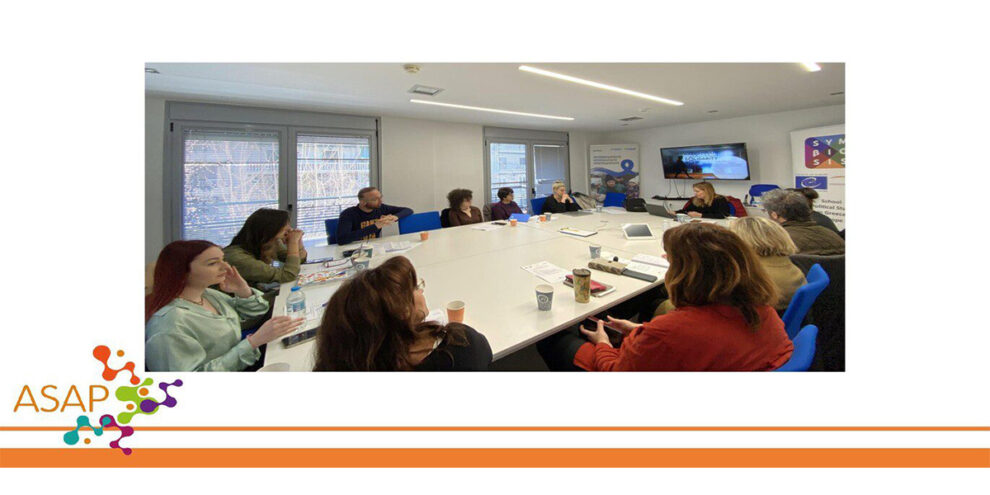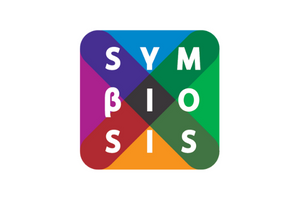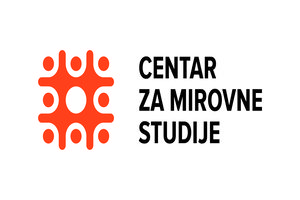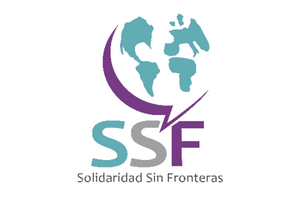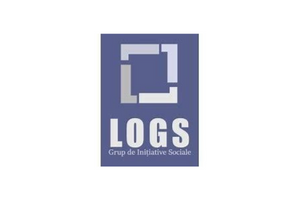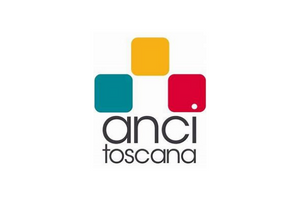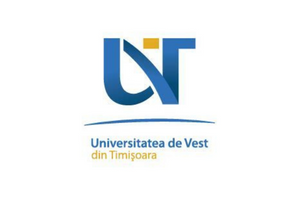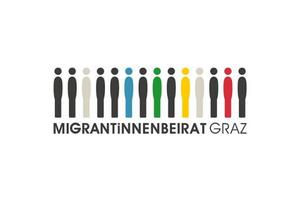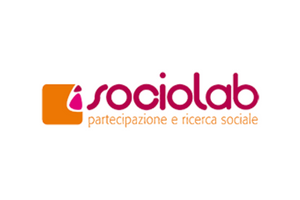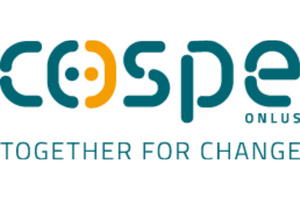The ASAP project, funded by the Asylum, Migration and Integration Fund of the European Union, aims to support local service providers and civil society organisations in the implementation of effective and replicable practices which can respond to third country nationals’ needs in the access to public services in the fields of employment, housing, education and health. The project objectives directly contribute to the implementation of European integration priorities, from enhancing local and regional capacities, resources and expertise to ensuring that all migrants have safe access to basic services.
From 2014, the rapid increase in arrivals of migrants and refugees brought to light previously existing deficits and accentuated the structural limitations of local public capacities to provide a migrant-inclusive access to basic services. The pandemic exposed the vulnerability of migrants with limited access to social protection and highlighted barriers in access to public health information. Faced with many urgent and unprecedented challenges, many local authorities took social and economic emergency measures that left out migrants, who lacked information and support to access the new measures.
Reaching the most vulnerable groups remains challenging: social isolation is one of the main issues facing migrant women, together with low skills in host-country language and intersecting forms of discrimination. Public services and civil society organisations (CSOs) play a crucial role in facilitating access to services, as they can implement complementary tasks: public service providers should deliver appropriate, culturally, linguistically and gender-responsive services and information, while local CSOs are able to communicate well with migrants and have capacities to engage with their communities. A strong collaboration between local authorities and CSOs can lead to broad and complementary responses to integration challenges, capable of catering for the service needs of vulnerable groups while enhancing social cohesion in their communities.
ASAP aims to supporting local service providers and CSOs in 6 European countries (Austria, Croatia, Greece, Italy, Romania and Spain) in the implementation of effective and replicable practices which can respond to migrants’ needs in the sectors of employment, housing, education and health.
Public Events
Exchange Event
Capacity-Building Trainings
Access to Mental Health Services
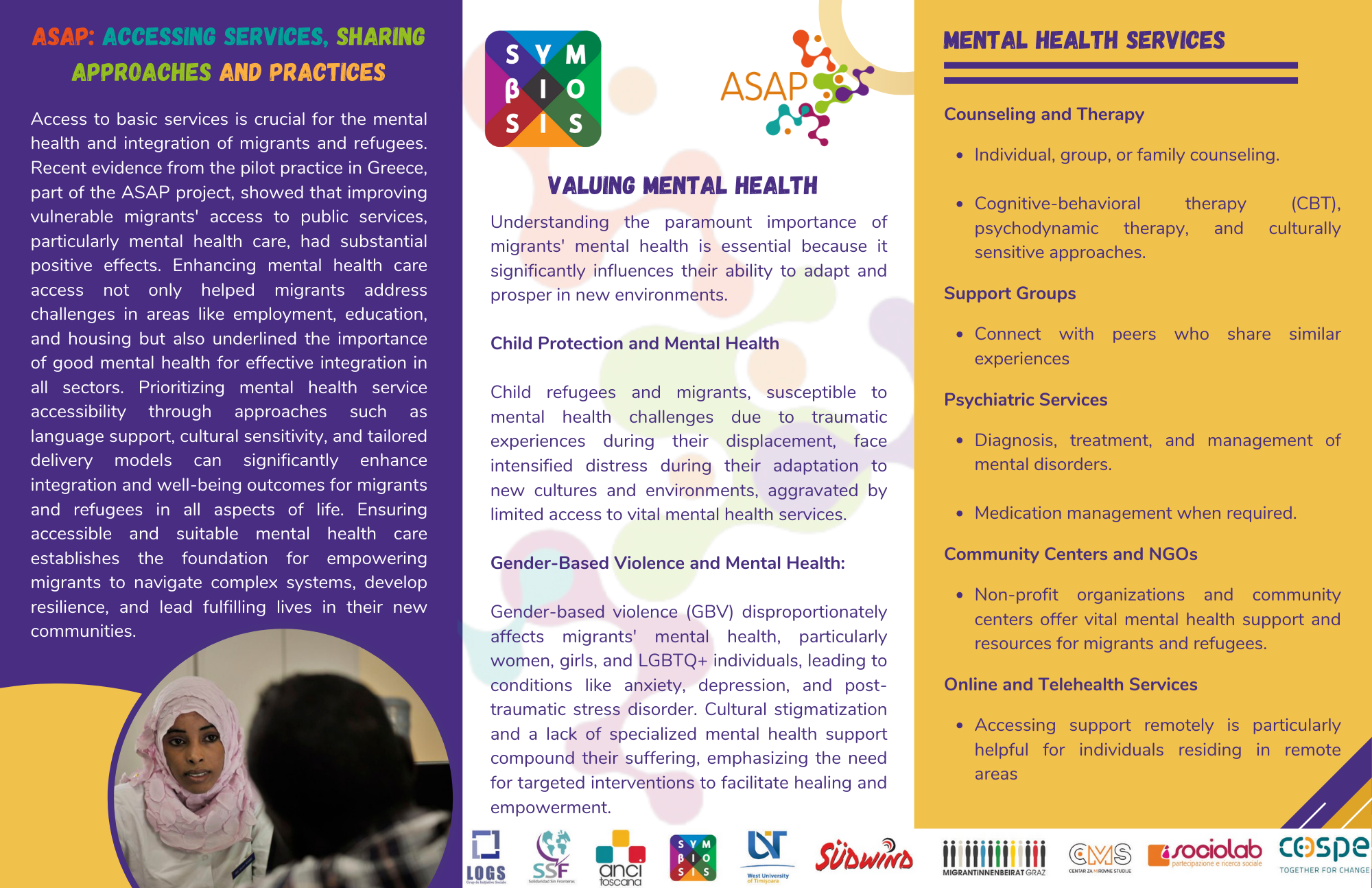
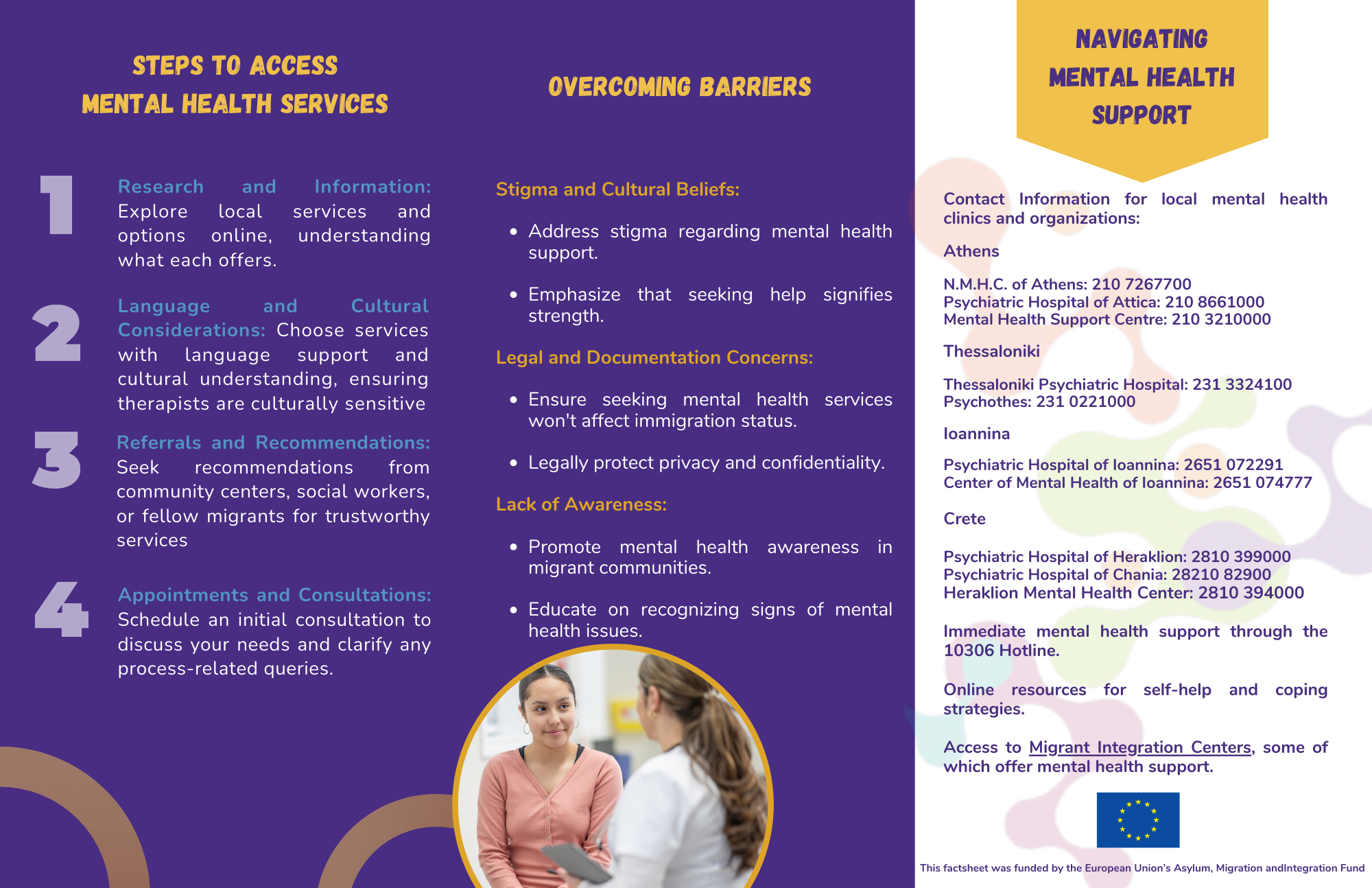
Navigating essentials
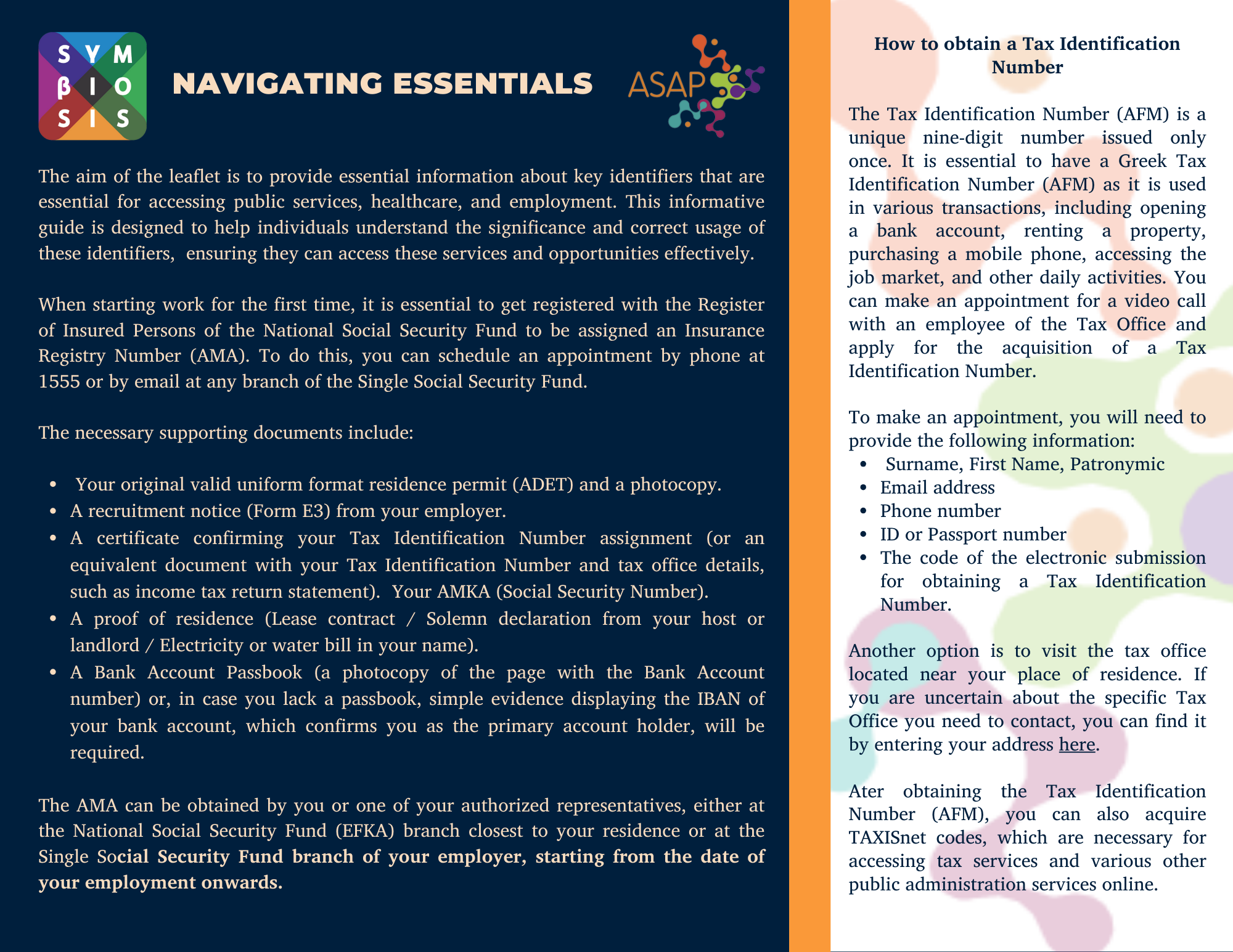
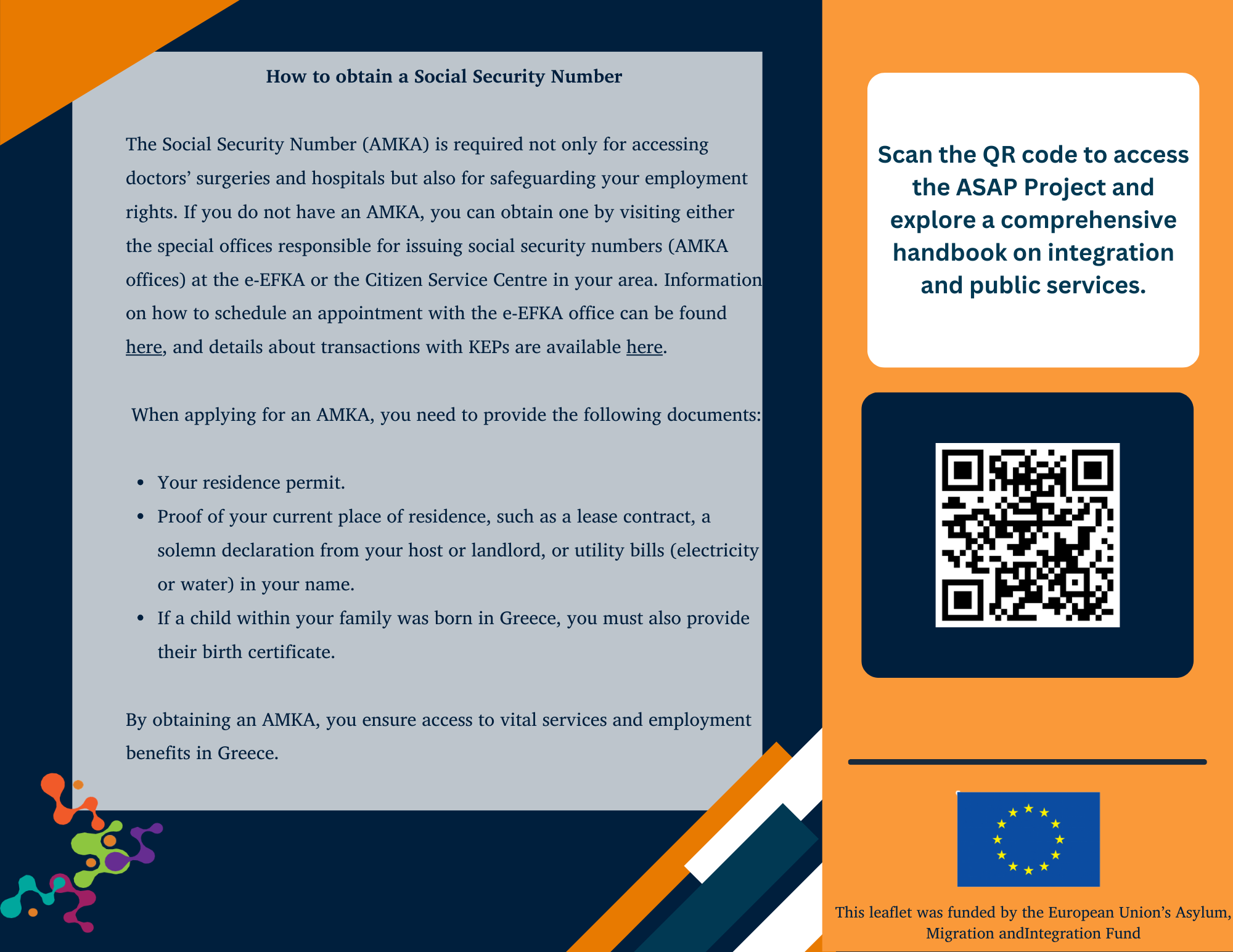
Videos
Symbiosis joined forces with 9 European organizations in 6 EU countries to find out how welcoming Europe is for migrants and refugees, and how to address gaps and needs during the EC Accessing Services, Sharing Approaches and Practices (ASAP) project.
The ASAP project contributes to the implementation of European integration priorities, enhancing capacities, resources and expertise to ensure that all migrants have safe access to basic services. The partnership met in Thessaloniki for its 2nd transnational steering committee on 12-13 of October.
Parallelities
Parallelities is a trilogy of short documentaries produced by Symbiosis-Council of Europe School of Political Studies in Greece within the framework of the European project ASAP: Accessing Services, Sharing Approaches and Practices, and directed by Maria Sidiropoulou and Yannis-Orestis Papadimitriou. The series is a triptych of profiles of people with a migrant background who live in Greece and a study of some of the complexities in their everyday lives that are unknown and invisible to many. The protagonists are not presented as passive recipients of challenge and hardship, though. Instead, the films focus on how first, second and third generation migrants navigate these difficulties, allowing their unique multi-dimensional personalities to unfold. More than a simple account of the struggle between exclusion and integration, Parallelities speak of community and individual empowerment and act as an exercise in representation that proposes a different gaze which revels in the complexity of the characters instead of simplifying their identity and social standing.
The Partnership




